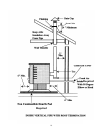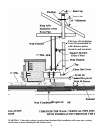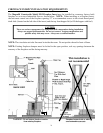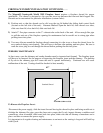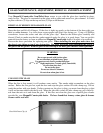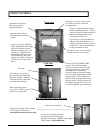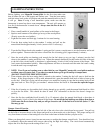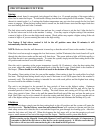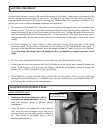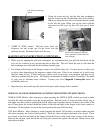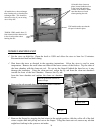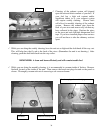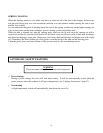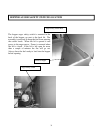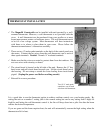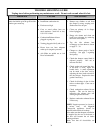
27
SETTING THE DRAFT
A proper draft setting is crucial to the successful burning of solid fuels. Draft refers to the amount of air
flowing through the burn chamber of your stove. Too much or too little draft will cause your stove to
burn improperly and may result in the fire burning out. Please follow these guidelines carefully as you
operate your stove to achieve maximum efficiency and enjoyment.
9 The amount of draft required for your stove to burn properly will depend upon your installation and
the fuel you use. You can set your draft by looking at the flame and following these guidelines. The
manual draft knob is the rod and knob on the left side of the stove. Pulling the knob out increases the
draft and pushing the knob in decreases the draft. A little movement of the knob goes a long way to
changing the flame. It may take several trial and error adjustments on the draft to achieve the correct
setting.
9 The flame should be an “active” flame. A flame that moves around lazily and emits visible smoke
needs more draft. To give the fire more draft, pull the damper out 1/8” and check the flame again. If
the status of the flame has not changed, move the damper another 1/8” until you get a clean “dancing”
flame. If moving the damper does not change the fire, you might have negative pressure in the
home.
9 The base of the flame should be blue in color and the top of the flame should be yellow.
9 If the flame does not have enough draft, fuel will build up in the firepot and eventually smother the
flame. If this happens, or if you notice the firepot is filling up with partially burned fuel, open the
damper 1/8” at a time until the fire is clean and dancing.
9 If the flame has too much draft, the flame will look like a torch in that it will be moving rapidly and
blowing fuel out of the firepot. If you find that you have this condition, move the damper inward 1/8”
at a time until the condition of the flame changes.
MAINTENANCE INSTRUCTIONS
DAILY MAINTENANCE
9 Surfaces on the front of the stove will be
extremely hot during operation. Always
wear heat resistant gloves to perform periodic
maintenance.
Heat Exchanger Rod
with Handle Attached
9 Using the hole in the handle end of the clean-out
tool, move the heat exchanger rod in and out 10
times and return it to operating position, all the way
in. This should be performed twice a day to
maintain peak efficiency.



